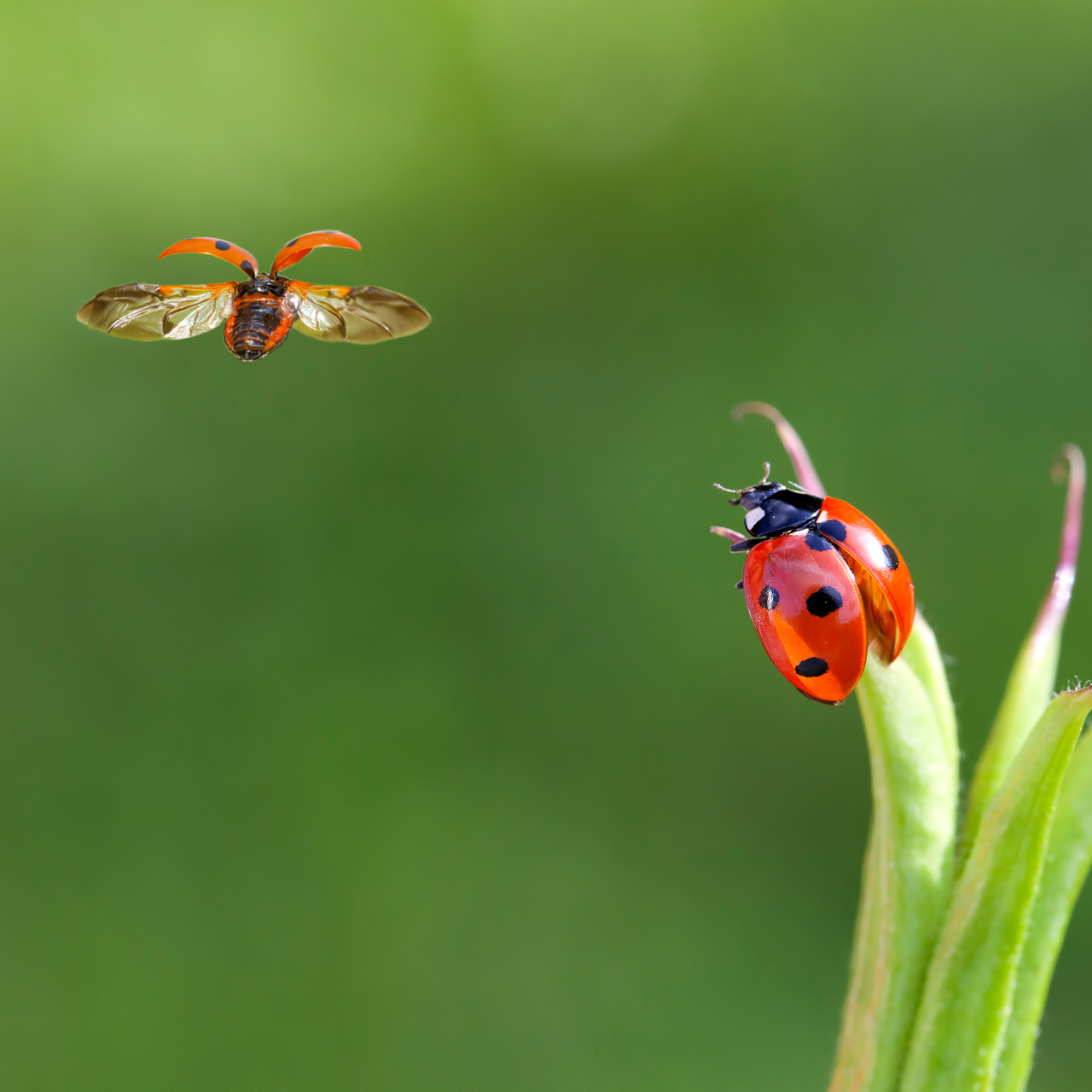
Ladybirds are everywhere right now, with swarms of these cheerful red bugs being spotted all over the country. While we love these critters in the garden, we don’t really want them in our homes, which is why experts have an unusual hack to deter them from stepping over your threshold.
Back in 2022, there was a ‘ladybird invasion’, and this year we're seeing another one as an influx of hot weather has increased the number of aphids in the UK, which ladybirds feed on.
Ladybirds are vital insects and incredibly beneficial as a form of natural pest control, which is why you do want to attract ladybirds to your garden. But to keep them out of your house and in your garden, pest experts recommend using citrus peels to keep them at bay. Here’s how.

Are ladybirds a problem?
Ladybird swarms have gone viral on social media as people have documented thousands of bugs swarming seaside towns such as Burnham-on-Sea, Brean and Barrow in the South West, with reports of them even biting.
You may have even seen videos yourself showing people covered in the little red bugs as they try to walk down the street.
‘They aren't particularly harmful, though they can bite - and they are actually considered beneficial insects as they can help control pests like aphids,' say cleaning experts at Janitorial Direct.
'That doesn’t mean people want them in their homes, though; they can be pretty pesky and we see them leaving yellowish stains on walls where they’ve been, and they can also cluster together too, which isn’t pleasant.'
How to keep ladybirds out a home
If you want to deter ladybirds from coming into your home, citrus peels such as oranges and lemons are a great choice. Many pests, such as flies, can’t stand the smell of citrus, and ladybirds are no exception.
‘If you want to deter them, you could keep it natural and try orange and lemon peels to help deter them, as citrus peels release strong oils that ladybirds dislike. Ladybirds avoid citrus because the strong, acidic oils interfere with their sense of smell,’ say the experts at Janitorial Direct.
‘You can place fresh or dried peels on windowsills, near doors, or rub the peel on frames to leave the scent. It’s a gentle, natural way to deter them, but not foolproof if you have lots of them.’
This works because, 'ladybirds rely heavily on their sense of smell to locate food, particularly aphids. Strong citrus scents, such as those from lemon and orange peel, can interfere with this, creating an environment they tend to avoid,’ says Daniel Steward from Shield Pest Control.

Using orange and lemon peels may not be the most effective method, however, as the smells quickly fade and need replacing every two days. So if you don’t eat a lot of oranges, this may not be the right method for you!
‘More effective approaches include using stronger scents such as lemon or citronella essential oils, sealing entry points with caulk or weather stripping, and cleaning surfaces where ladybirds have been with a vinegar and water solution to remove any pheromone trails,' advises Daniel. 'These methods can help reduce the likelihood of ladybirds entering and settling in your home.’
However, if you are really struggling with an infestation, Daniel recommends speaking to a professional pest control company.
What you need
Citronella has an incredibly strong citrus scent that deters a range of pests, including ladybirds. Mix with water to make spray that is stronger than just peels.
Seal any entry points to create a barrier to prevent ladybirds from entering. This is self-adhesive and a great choice for beginner DIY-ers.
Use a mixture of vinegar and water to clean any yellow stains left by ladybirds. This vinegar has a lovely rhurbarb scent so you don't have to worry about the acrid scent left behind by normal vinegar cleaners.
While ladybirds are important natural predators, this summer's ‘invasion’ means you’ll be seeing a lot more of them around. And if they aren’t welcome guests indoors, using citrus scents is a natural, harm-free method to deter them.







